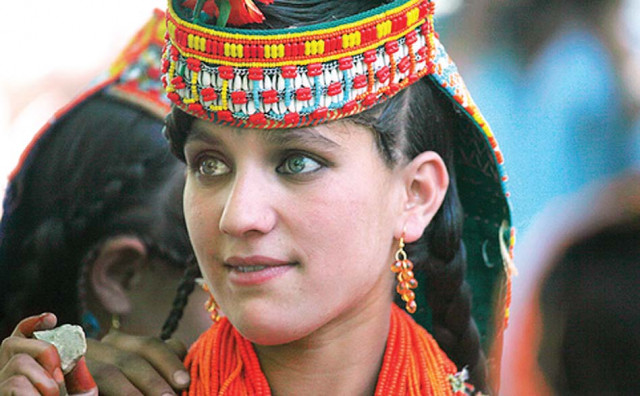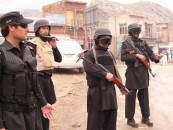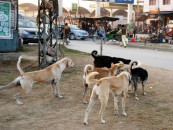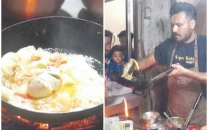The Kalash struggle to preserve their culture
Greek philanthropist who aided indigenous people, prevented from returning.

The Kalash struggle to preserve their culture
For Wazir Kalash, Athanassios Lerounis was a godsend whose charity work largely addressed the socio-economic woes and reasons forcing Kalasha people to leave their unique ancient values and belief system.
Since the Greek aid worker’s abduction in September 2009 by the Taliban and subsequent release after eight months in captivity, the elders of the last surviving non-Muslim community living in the wilderness of the Hindukush mountain range have been facing an uphill task in preserving their ancient belief system, language and culture.
“Lerounis’ philanthropic work helped address the reasons for the conversion of the Kalasha to Islam,” said Wazir Kalash, the Kalash community leader in the village of Anizh, Bumburate Valley. He said Lerounis had given scholarships and many other incentives to the Kalasha for preserving their religion and culture.
In Birir valley, many of the Kalasha live in abject poverty. Yet their traditions dictate that they perform funeral rituals that can cost millions of rupees.
“The [expenses of] Kalash rituals became the primary reasons for families in Birir abandoning their belief system”, Wazir added.
Lerounis began by building the Kalash-Dur, a wood-hewn museum in Baroon village in Bumburate with financial assistance from the Hellenic Aid Society of the Greek ministry of foreign affairs to preserve and showcase the Kalash culture. He also constructed a school designed exclusively for the Kalash community.
His efforts helped revive the community and slowed the rate of conversion to Islam from 2005 onwards, when he first began working with the Kalash community. Without the assistance of his cultural preservation efforts, it remains unclear how this community will be able to survive.
A dwindling community
The Kalasha are the last surviving non-Muslim tribal community in Northern Pakistan, living at an elevation of 8,000 feet. A decade ago, there were 15,000 non-Muslim ethnic Kalasha in the three valleys of Bumborate, Rumbur and Birir. Now there are just 4,000.
One of the major reasons for the dwindling of this community is love. Young Kalash women fall for non-Kalash men. When the couple marries, the woman typically converts to Islam and adopts the non-Kalash culture.
Huma Saeed, 16, a resident of Anizh, says that love is one of the main causes encouraging young Kalasha girls to say adieu to their families and the centuries-old Kalash religion. Two of her aunts became Muslim the same way. However, she still feels that there should be no restriction on women marrying whom they choose.
The trend of entire families converting to Islam is more painful to the Kalasha than simply one or two people converting, even though conversions often tend to create rifts within families, especially if only one or two members have left the Kalash religion.
Wazir said if a member of a Kalash family becomes Muslim, they have to leave their home because the differences between Islamic traditions and Kalash rituals makes it very difficult to live under one roof.
Published in The Express Tribune, April 19th, 2011.



















COMMENTS
Comments are moderated and generally will be posted if they are on-topic and not abusive.
For more information, please see our Comments FAQ